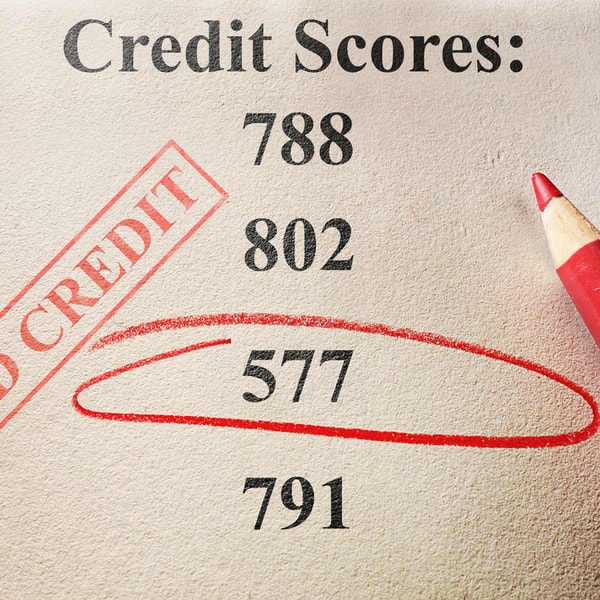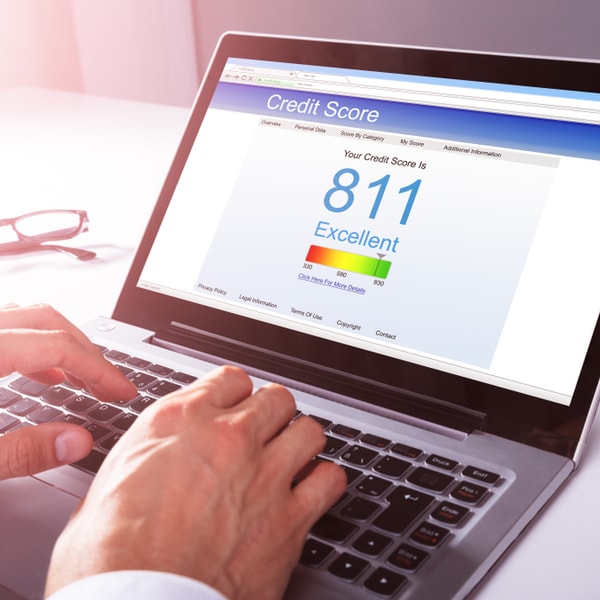Debunking Myths about CIBIL Score
If you apply for a loan or a credit card, the bank or the financial institution will make its first impression through your credit/CIBIL score. It is the mirror of your credit habits to the banks and financial institutions. A credit score is a numerical expression of your credit and repayment habits, wherein the score is calculated from 300 to 900 points.
Higher the credit score, better is your perception as a buyer. While it is vital for you to maintain a good CIBIL score, many myths, and misconceptions continue to be present around this score. Here we are debunking myths about CIBIL score that will help you have a better score.
1. Higher debt translates into a lower CIBIL score

It is often considered that having higher debt will result in a lower CIBIL score. That is the reason why many people refrain from having more than one credit card, as it may adversely impact their credit score. This is undoubtedly one of the most popular myths out there.
CIBIL score reflects the credit habits of an individual and not the credit quantum. If you are regularly repaying your credit card bills and loan EMIs on time, having a high loan amount may not be detrimental. Instead, having fewer credit cards or loans may not provide a sufficient credit data bank for the credit score to be meaningfully processed.
However, one must ensure that the credit profile of an individual stays balanced between secured and unsecured loans. Having a high quantum of the personal and unsecured loans may slightly impact the CIBIL score adversely.
2. One Time Settlement for the debt lowers the CIBIL score

There could be compelling reasons for you to default on 1 or 2 EMIs or paying ’Minimum Amount Due’ instead of full credit card outstanding. Most of you are unwilling to approach a bank for settling outstanding dues, as you may feel that this can be viewed adversely in your CIBIL score and credit report.
While it is correct that such a loan or credit card settlement reflects in your credit report for some time, you must also remember that showing a zero overdue amount is a preferable position. As compared to continuing with amount remaining overdue and paying additional interest amount. Once the loan/ credit card has been settled with the bank, it will have no further impact on your credit score.
It has also been noticed that only the defaults/ delays in repayment in the last three years (36 months) get factored in the credit score calculation. Any defaults prior to that period may not adversely impact your CIBIL score, even while the same may be getting reflected in the credit report. Having zero overdue amount consistently is imperative for you to have a good credit score over long term.
3. No Loan/ Credit Card gives you a better score

You may be rejecting credit card offers, thinking that having no loan or credit card will help you position yourself as a credit-worthy individual. While living a debt-free life is a bliss and undoubtedly an appreciable fact, it effectively makes you miss a chance to build your credit history. If you have not held any loans or credit cards, one will get a No-Hit or No Credit Score message while checking for your CIBIL score.
So, when you will be in genuine need of a loan, a No-Hit score will prompt the banker to perform additional procedures to demonstrate your repaying ability. A few banks also allow preferential interest rates for the borrowers with better credit score and the absence of credit score will also make you miss the opportunities for lower interest rates.
A good credit history, and eventually a good credit score can only be built with a regular repayment record. Hence, even while you may not want a loan for any purpose, you can get a credit card and use it effectively over some time to build your credit score. Remember that it is the effective management of debt and not absence of debt that helps you to maintain a good credit score.
4. Higher Income, Higher Score

It is yet another misconception that higher income translates into a higher CIBIL score. This is because a higher income will automatically translate into better repayment capacity for loans and credit cards. This might be an essential consideration for banks and financial institutions for loans and credit cards but is irrelevant for the credit score.
It must be noted that it is not repayment capacity, but instead repayment tendencies that matter for a CIBIL score. Your credit behaviour shapes your credit profile, which takes into consideration the actual historical repayment record and not the expected repayment record. In fact, the income of an individual is not any criteria in the credit score calculation model. As such, having a higher or lower income does not impact the credit score at all, instead having a good intent to repay such loans does.
5. Multiple loan inquiries do not affect your CIBIL score

When one requires funds, he/ she may apply for loans concurrently with several banks, to compare the terms offered by different institutions and then get loans on best available terms and interest rates. It is often felt that multiple loan inquiries do not affect CIBIL score.
However, it must be noted that while a one-off instance of such simultaneous loan inquiries might not significantly impact the credit score, regular inquiries to credit score throw some light on an individual’s credit behaviour. Such an individual is seen as a credit-hungry individual with excessive reliance on debts, thus adversely impacting their CIBIL score.
Multiple loan inquiries in the credit report are another source of suspicion for the banks considering a loan to an individual, as it may reflect regular loan rejections for an individual which can also be for reasons other than financial and credit-related reasons. When it comes to granting loans, bankers are often cautious to contain the credit risks for the bank. Hence, one must refrain from making multiple and routine loan inquiries to maintain a good credit score.
6. Checking your CIBIL score lowers your CIBIL score

It is always advised that one must keep checking his/ her credit history regularly, preferably once every quarter. However, people often do not check their CIBIL score, for they believe that checking the credit score lowers their score. Even in the point above, we discussed that multiple loan inquiries adversely impacts the score. However, one must differentiate between a loan inquiry and checking the score. While a loan inquiry is recorded in the credit report, checking your score is not.
You may feel like checking your CIBIL score through a bank or financial institution to save on charges. However, you must note that whenever you check your score through such institutions, it reflects as a prospective loan/ credit card application and is recorded as a credit inquiry in the credit report. Instead, you can check the credit score free once a year through any of the four Credit Information Companies operating in India, viz CIBIL TransUnion, Experian, Equifax and CRIF HighMark.
While you check your credit score and credit report, you may verify the contents of the report and can also report any incorrect information, to the Credit Information Companies for necessary correction. Keeping a check on your credit score is essential and vital as it defines your eligibility and access to loans and credit cards.
7. Being a co-borrower/ guarantor does not impact my CIBIL score

It is often believed that being a co-borrower does not affect your credit score and the details of the loan are recorded in the credit history of the first applicant only. Similarly, it has often been seen that people stand as guarantors/sureties to the loans availed by their friends and relatives, for such guarantees are not seen as a risk to the credit profile or credit score. However, it is now the time to debunk this myth about CIBIL score.
If you are a co-borrower in any loan, it is likely to impact your credit report in the same manner as it would have affected if you were the sole borrower. Hence, make sure that your co-borrowed loan also demonstrates a healthy credit culture, and there is no default in the repayments. Any default in such loan can be harmful to your credit profile and credit score as well since the credit report will reflect such outstanding amounts, and the credit score is also adversely impacted.
Similarly, the guarantors in the loan can also see their credit report adversely impacted if bank invokes the guarantee against a defaulting loan. This is because once the guarantee is invoked, the loan liability effectively shifts on your shoulders.
Having a good CIBIL score is the key to avail of better credit facilities and eligibilities. With the growing digitisation of the financial processes, the role of credit score for your next loan and credit card application can only be expected to increase. Hopefully, debunking these myths around CIBIL score will help you have a higher one.
Thanks for the information.